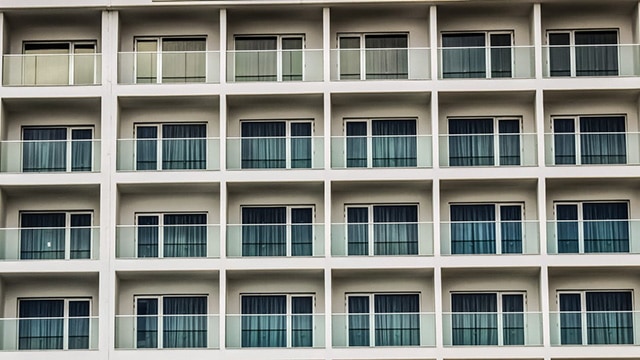Pushback on ‘slum landlord’ comments as landlord licensing restart approved in Brampton
Published March 20, 2024 at 12:31 pm

The city is moving ahead with the reboot of its landlord licensing program despite some residents upset with members of Brampton City Council referring to property owners taking advantage of tenants as “slum landlords” or “slumlords.”
Brampton’s controversial Residential Rental Licensing Pilot project (RRL) was put on hold just a week after launch following pushback from some residents, freezing a program that the city said would lead to a crackdown on illegal and unregistered units.
Now the city has a timeline to bring the program back online with updated requirements, despite pushback from some residents who said they can’t cover the added costs and disapprove of council members including Mayor Patrick Brown who’ve characterized bad actors as “slum landlords.”
A report to council on Wednesday says online applications for the RLL pilot will resume “for the end of March 2024 and no later than April 19” and require any rental property with four or fewer units to register with the city.
The program will restart with all the city removing proof of ownership, corporate ownership, criminal record check, and electrical and gas inspection requirements, but require applicants of registered additional residential units (ARUs) and single house-keeping units to obtain a business license.
The project launched on Jan. 1, introducing a laundry list of new regulations for property owners in Wards 1, 3, 4, 5, and 7 who want to rent out units.
Licensing under the program was supposed to cost $300 annually, but fees for landlords are being waived for the two years the pilot if property owners register by June 30.
Opponents of the program have complained about the price of the program and a lack of public consultation despite holding engagement sessions, including one where 84 per cent of over 7,000 respondents said the city needs to do more to cut down on illegal units.
The survey also found 67 per cent said the city should increase fines and penalties for illegal secondary units, and 77 per cent said a fatal fire in an illegal unit should be referred to Peel Police “for criminal negligence.”
Many residents have repeatedly given feedback on the program in council chambers, including several on Wednesday who were upset by Mayor Brown and Coun. Rowena Santos’ previously referring to some unregistered landlords as “slumlords” or “slum landlords.”
To clarify her comments, Santos addressed one of the speakers and read the Merriam-Webster definition of a slum landlord, which is “a landlord who receives unusually large profits from substandard, poorly maintained properties.”
“To be very clear, there is no accusation at this table…accusing anyone of being a slumlord,” Santos said in defence of her and council colleagues using the term.
“We are saying there are slum lords that do exist in Brampton, and we are trying to use this pilot program to deal with them,” Santos said on Wednesday. “If that is not you, then you don’t have much to worry about.”
Some residents at council said the comments target racial groups, and outright said they simply don’t believe that legal, registered landlords won’t be penalized under the additional regulations.
Brown said the city has been fighting against misinformation surrounding the program and said the basics of the program are simple and required for safety – don’t break fire and building codes.
The city says RRL was introduced as a way to cut down on an estimated 16,000 unregistered rentals in Brampton, as well as go after problem landlords and tenants, with staff saying new measures would add an additional offence of operating without a licence.
INsauga's Editorial Standards and Policies








